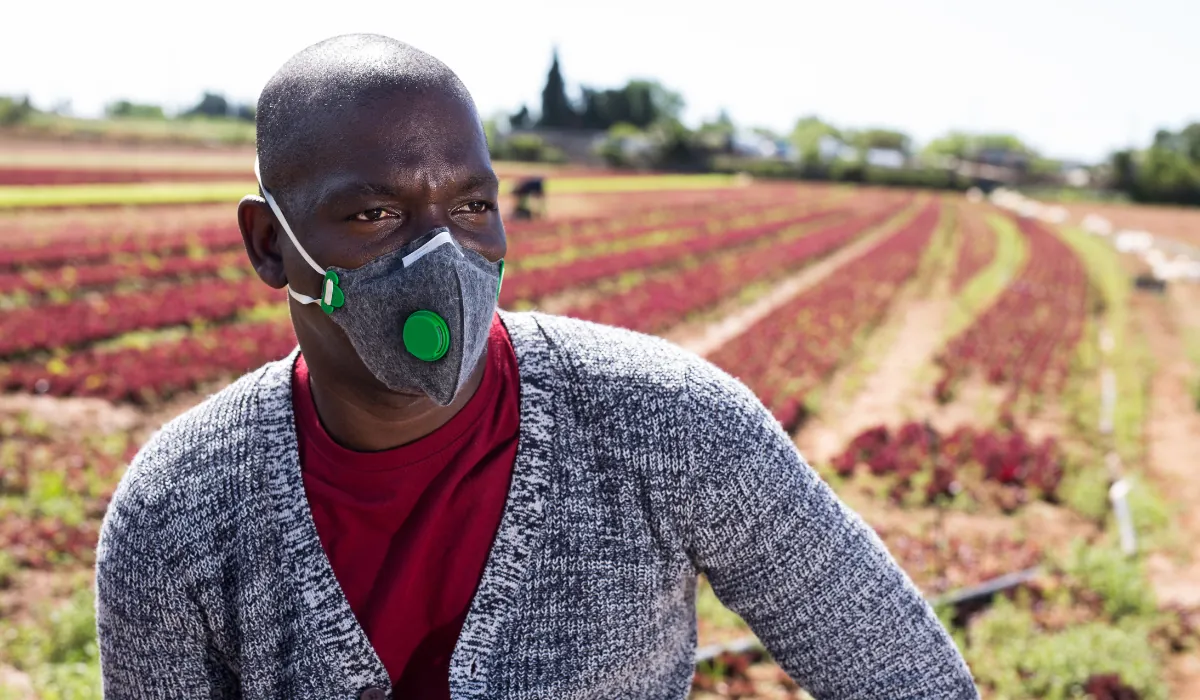Sonoma Farmworkers Face Health Risks from Wildfire Smoke, Study Reveals
Research highlights inadequate protection for vineyard workers during 2020 California wildfires. Study recommends improved safety measures, including air quality monitoring and hazard pay, to safeguard farmworkers' health.

In 2020, as wildfires ravaged Sonoma County's renowned wine country, farmworkers faced severe health risks due to toxic air quality. A recent study, published in GeoHealth in July 2023, sheds light on the inadequate protection measures for these essential workers during such environmental crises.
The research focused on the 2020 Glass and LNU Lightning Complex fires, examining air quality data from July 31 to November 6, 2020. Utilizing both EPA's AirNow and PurpleAir monitors, the study revealed alarming levels of air pollution. The AirNow sensor recorded 21 days of air quality unhealthy for sensitive groups and 13 days unhealthy for everyone, while PurpleAir monitors showed even higher numbers.
Michael Méndez, an assistant professor at the University of California-Irvine and one of the study's researchers, emphasized the potential long-term health impacts on farmworkers exposed to toxic air quality. The study also scrutinized Sonoma County's Agricultural Pass program, which allows farmworkers access to evacuation zones for essential activities. Researchers found the program lacked clear standards and enforcement of safety requirements.

Irva Hertz-Picciotto, a professor at the University of California-Davis not involved in the study, highlighted the rapid onset of symptoms from wildfire smoke exposure. These include eye irritation, coughing, and breathing difficulties. Long-term exposure to fine particulate matter in smoke can increase risks of heart and lung diseases, asthma, and low birth weight. Recent research has even linked wildfire smoke inhalation to an increased risk of dementia.
The study recommends several measures to protect farmworkers, including:
- Air quality monitors at work sites
- Stricter requirements for employers
- Emergency plans and training in various languages
- Post-exposure health screenings
- Hazard pay
Max Bell Alper, executive director of North Bay Jobs with Justice, noted that the situation in California is becoming increasingly common across the country as climate change intensifies wildfires.
"What forces us to work is necessity. We always expose ourselves to danger out of necessity, whether by fire or disaster, when the weather changes, when it's hot or cold."
The vulnerability of farmworkers is exacerbated by factors such as poverty, immigration status, and lack of healthcare coverage. A 2021 farmworker health survey report revealed that fewer than 1 in 5 farmworkers have employer-based health coverage.
As climate change continues to fuel more frequent and intense wildfires, the need for better protection of these essential workers becomes increasingly urgent. The study's findings serve as a call to action for improved safety measures and worker rights in the face of growing environmental challenges.


































